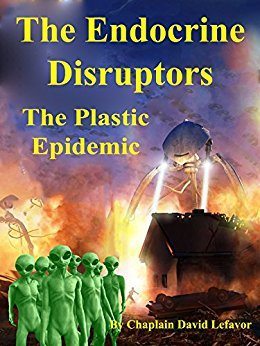 Today, there are more than 20 different major types of plastics in use worldwide. Recently plastics have been in public eye for being potentially dangerous to human exposure and for toxic components such as BPA and DEHP. The short term use of millions of tons of plastic is unsustainable and dangerous.
Today, there are more than 20 different major types of plastics in use worldwide. Recently plastics have been in public eye for being potentially dangerous to human exposure and for toxic components such as BPA and DEHP. The short term use of millions of tons of plastic is unsustainable and dangerous.
We are still unaware of every widespread consequence created from plastic pollution and how it affects and will continue to affect living things and our environment overall into the future. The epidemic of plastic goes far beyond public health as over 300 million metric tons of plastics are produced in the world annually. No one knows exactly how long plastic takes to break down, but it is believed to take hundreds or even thousands of years for plastic to fully decompose.

It is not just the accumulation of plastics that harms the environment, but also the toxins from the plastic that leach into our soil and water. Another downfall of plastic is the effect of buildup in the oceans, where it is estimated that 100 million marine mammals are killed each year from the plastic pollution. Sea turtles, whales, dolphins, sea birds, fish, seals and many other species mistake plastic as a source of food and become entangled, cause an obstruction in the digestive tract and can even puncture organs.
 As more and more devastation occurs due to this plastic problem, scientists and concerned members of society have started to create reusable and more sustainable solutions for the waste. Solutions such as biodegradable plastic and now even turning plastic into bricks to lay houses with.
As more and more devastation occurs due to this plastic problem, scientists and concerned members of society have started to create reusable and more sustainable solutions for the waste. Solutions such as biodegradable plastic and now even turning plastic into bricks to lay houses with.
New Zealand-based inventor and engineer Peter Lewis, teamed up with the people behind the ByFusion machine to make these plastic bricks a reality. The ByFusion machine is configured to produce RePlast blocks with the size and dimensions of common concrete blocks and can be used in a wide variety of infrastructure, development, and construction projects. An added bonus is that the materials are stronger and lighter than concrete making them easier transport and to lay. The team has dedicated themselves to creating low income housing around the world and they are not the only ones.
 The Affresol company is building three-bedroom houses complete with bathroom, kitchen, and plumbing with frameworks made entirely of recycled waste plastics like water bottles, all for only around $42,000. The plastic used is almost four times as strong as concrete and insulates the house twice as well, making it possible to cut their heating bills in half. The houses are also fire, storm, and wind proof, and naturally waterproof.
The Affresol company is building three-bedroom houses complete with bathroom, kitchen, and plumbing with frameworks made entirely of recycled waste plastics like water bottles, all for only around $42,000. The plastic used is almost four times as strong as concrete and insulates the house twice as well, making it possible to cut their heating bills in half. The houses are also fire, storm, and wind proof, and naturally waterproof.
Miniwiz Sustainable Energy Ltd. is another company using plastic as a main material to build houses. The walls of the buildings are made solely of plastic bottles that fit together like Lego pieces. The polygonal bottles are called Polli-Bricks that make the buildings structurally sound and able to withstand earthquakes and typhoons, making these houses ideal for areas prone to natural disasters. Polli-brick houses are also said to be environmentally friendly and relatively cheap to build.
 These companies are providing cost effective solutions for housing while making a positive impact on the environment. As plastic becomes a bigger and bigger issue, it will take us all coming together to create effective solutions and support solutions like these, that will help build a better tomorrow for everyone.
These companies are providing cost effective solutions for housing while making a positive impact on the environment. As plastic becomes a bigger and bigger issue, it will take us all coming together to create effective solutions and support solutions like these, that will help build a better tomorrow for everyone.




